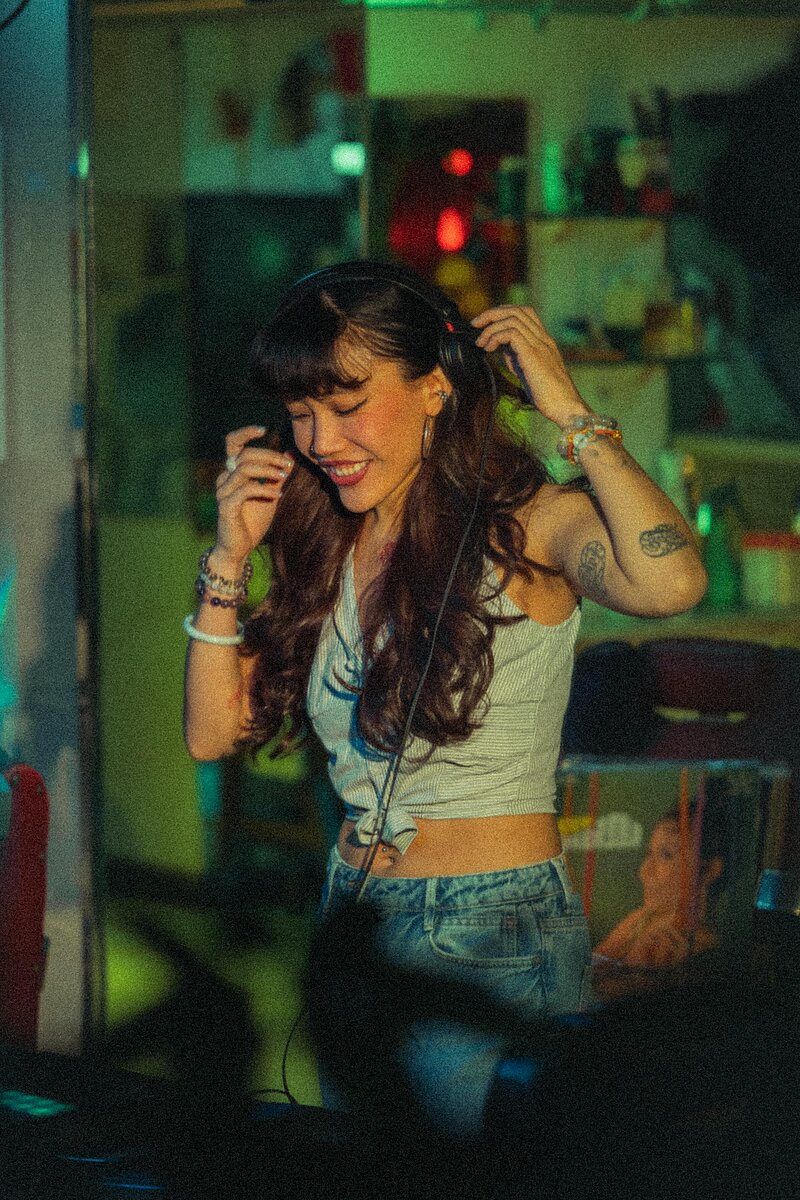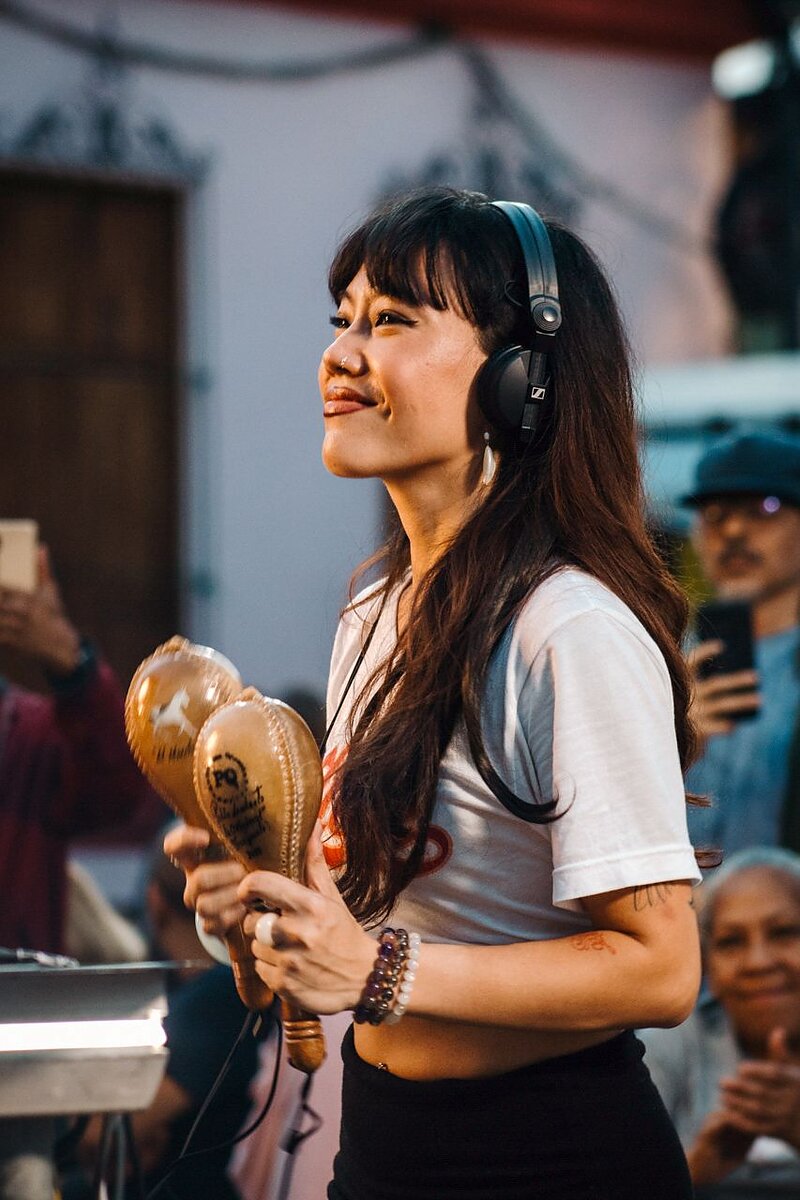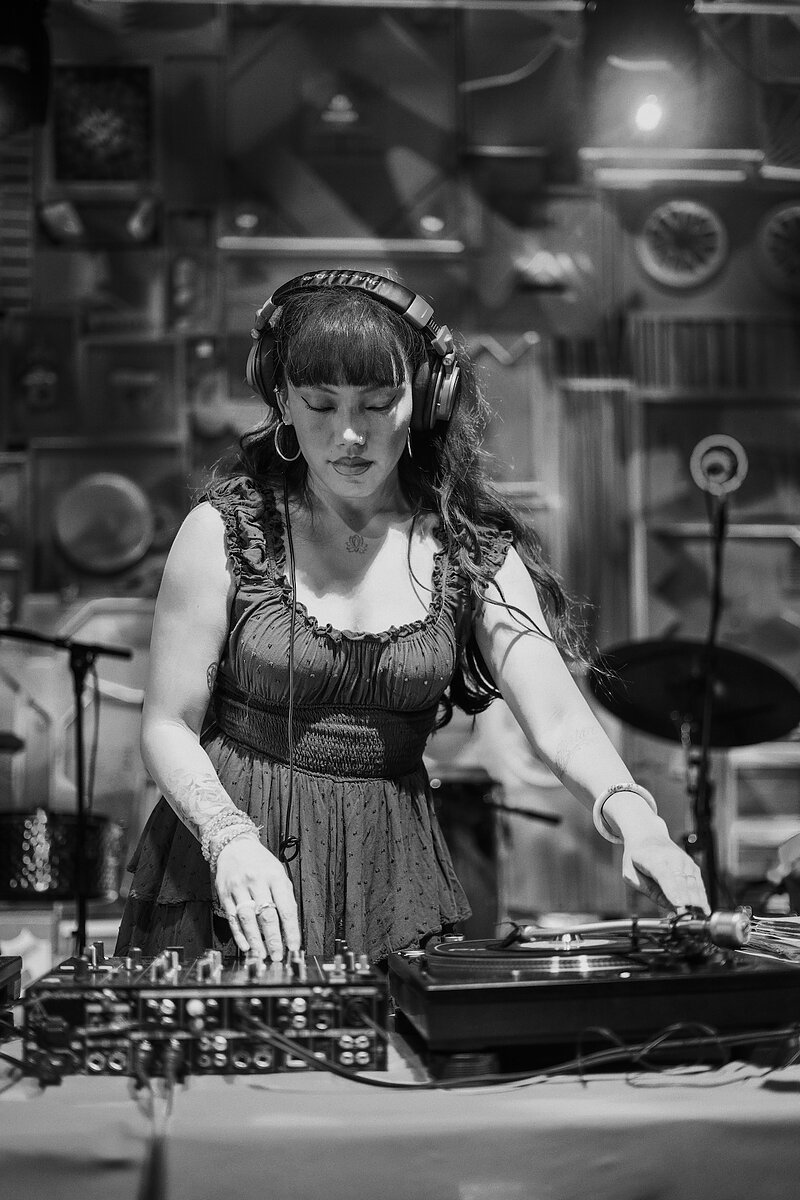Gia Fu Traces the Cross-Cultural Rhythms of Salsa Music
Salsa music has opened the world up to musician and DJ Gia Fu. More people know about Fu in New York City than in her hometown of Hong Kong. More of Fu’s social media followers speak Spanish and English than Cantonese or Mandarin. And before she began filling venues in Hong Kong with her unique and enchanting vinyl mixes that “bridge cultural gaps and celebrate diversity through Salsa, Afro-Latin music, and Asian sounds” under her series “Canton Mambo,” Fu was already a global bonafide star in the world of Latin music.
In 2021, Fu produced a full-length salsa album featuring Grammy nominee Angel Meléndez. In the same year, she became the first Asian woman to tour as a Latin music DJ. In 2022, she signed with Marc Anthony’s talent agency MagnusMedia. In the past two years, Fu has completed several major tours around the US, Europe, and Latin America. She has played Glastonbury Festival, Lincoln Center, and El Museo del Barrio as a guest artist celebrating the 60th anniversary of the legendary salsa record label Fania. All the while, her Youtube salsa mixes have garnered millions of views.
After traversing the globe, this past October, Fu decided to make New York City, the birthplace of salsa, her home.
Here, at a Caribbean percussion workshop, she connected with a community of Chinese Cuban women in their 60s and 70s. Her newest single, “Lotus,” is largely inspired by them. “There are lots of Cuban Chinese or Peruvian Chinese restaurants in New York that make this community feel at home—why isn’t there something music-wise?” Fu told me. “I’d love to do something for them and make the kind of music that they could relate to, in the form of salsa or Latin music while bringing together instruments from their roots.”
Emblematic of Fu’s signature cross-cultural style, “Lotus” is an even bolder blend of Chinese and Latin influences. Trained as a Chinese folk dancer, Fu began her adventures weaving the traditional Chinese instrument, guzheng, into a full-set salsa orchestra with her first single “Canton Mambo” released in 2023. With “Lotus,” Fu pushes her experiment further, incorporating Chinese percussion, string instruments, and familiar melodic arrangements reminiscent of the unique sounds of China’s southwest. While introducing rich Chinese instrumentation in the single, Fu maintains the form and structure of salsa.
In addition, a sudden, playful switch into a hip hop-inspired rhythm in the bridge of “Lotus” pays homage to the intersecting global lineages of breakdancing. It was through this intimate community of dancers in Hong Kong that Fu was first introduced to salsa music as a teenager. Standing in the audience at a dance battle, Fu heard the circle of dancers singing the lyrics to Roberto Roena’s classic salsa hit, “Que Se Sepa.” It was this song that inspired Fu to learn Spanish and track down the threads connecting mambo dancers in Latin America and breakdancers in New York.
Fu’s music has always been the culmination of meticulous research; knowledge-sharing and collective celebration are central to her projects. “More than working as a DJ, I liked sharing the music,” Fu said. In this way, she considers her work to be less akin to an entertainer and more along the lines of an academic. In particular, Fu is interested in researching Afro-Latin music’s influence on Asian music, culling from records by artists like Chang Loo and Grace Chang.
Fu’s deep passion for Cuban music motivated her to study the long and painful history of the coolie trade from China to Cuba, and how such histories have embedded themselves into culture: how the Chinese 唢呐 (suǒnà) became the corneta china and how Sanfancón, a Chinese deity, was introduced into the Afro-cuban religious system. Fu has also shared how Latin music and dance were represented in some of Hong Kong’s most iconic cinematic masterpieces, most notably in films by Wong Kar Wai and Stephen Chow.
“If you make an artwork, you need a lot of research,” said Fu. “If I choose to do something, I need to know everything about it. That’s why I travel to Cuba, read history, and research.”
“What I wanted to do is not only appreciate other cultures, but also my own,” she continued, clarifying that her purpose has never been to “become Latina”—rather, she hopes her steadfast research promotes genuine cross-cultural understanding, mutual appreciation, and joy.
Fu shared that one of her most exciting events in recent years was her return to the Chinatown Block Party, a continued partnership with Think!Chinatown and Chinatown Records Project, a homegrown community effort to celebrate the sonic tapestry of music, memory, and history that comes with inherited family collections. On a steamy August afternoon, Fu played her favorite salsa, cha-cha-cha, and Chinese records, bringing people of all ethnicities and ages into a dancing reverie on the streets of Manhattan’s Chinatown.
—Coral Yang is a writer based in Mexico City, who focuses on the human connections between China and Latin America. She is from Shenzhen, China, and brews a relatively good cup of coffee.



